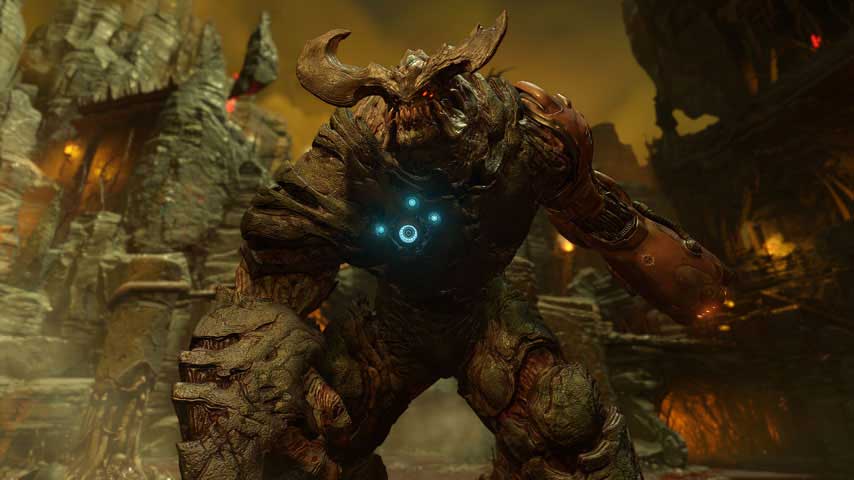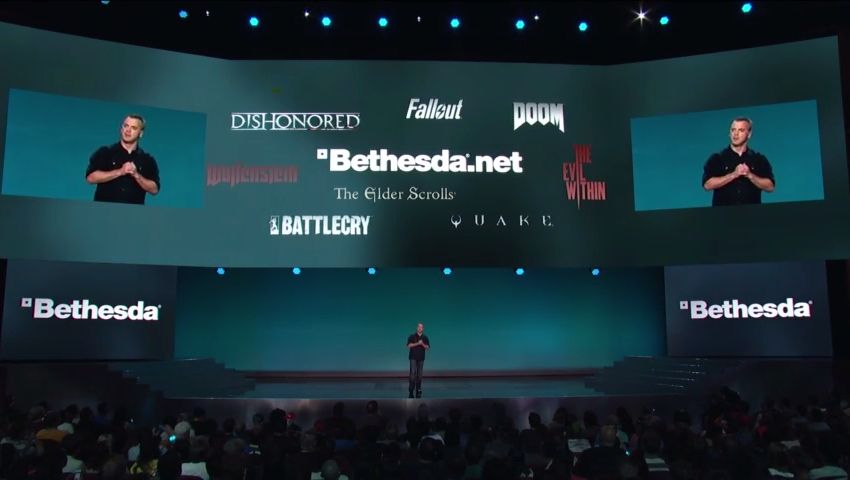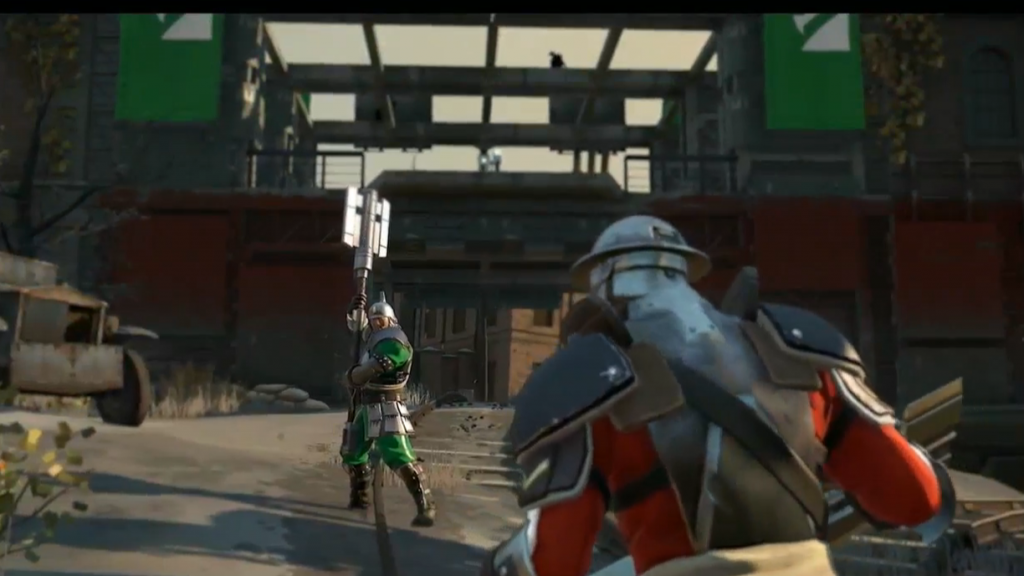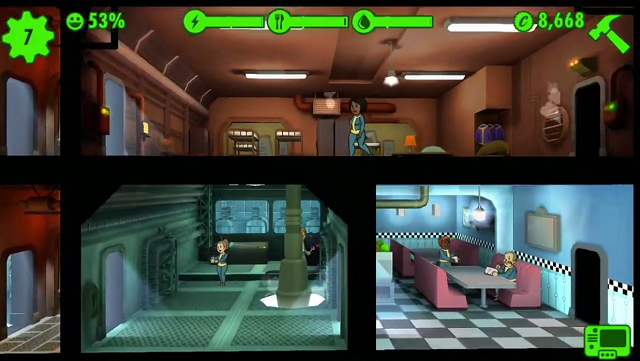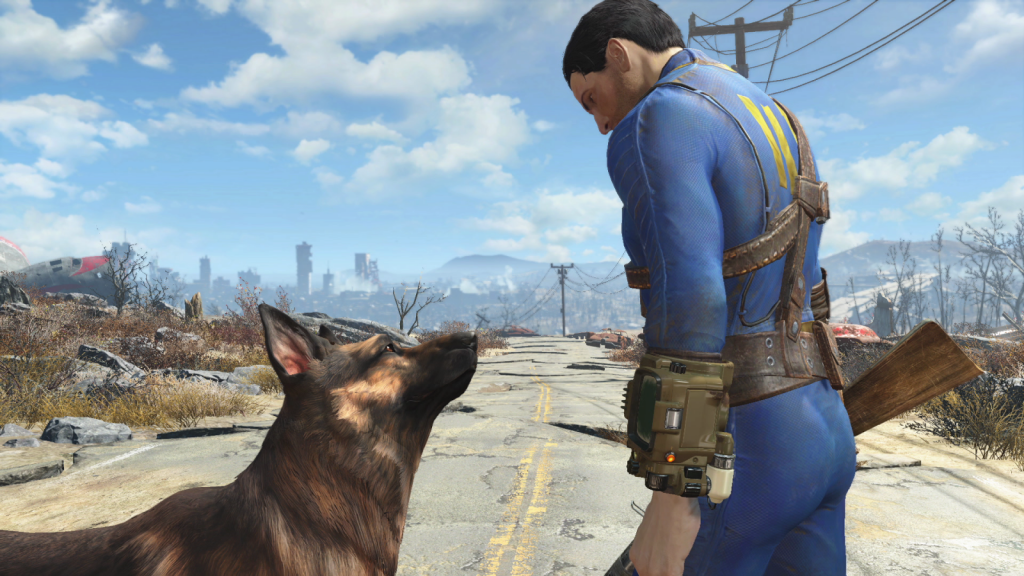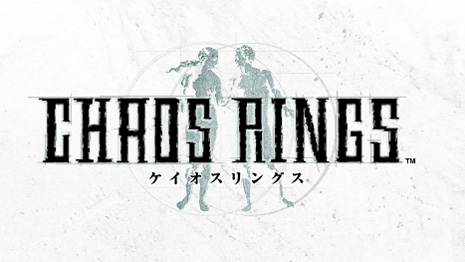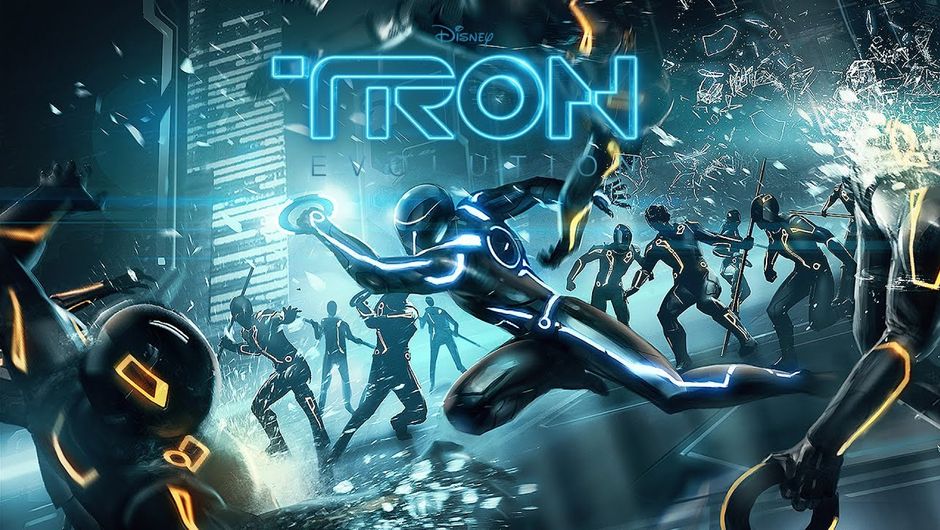It's officially here: E3 2015 started off last night with a bang as Bethesda Softworks took to the stage with their very first E3 press conference, and while the primary purpose of the show was obvious (Fallout 4: confirmed for a release date of 11/10/15), Bethesda did more for gamers at E3 than just demo a bunch of soon-to-be products. Following a somewhat stale E3 2014, Bethesda showed us how current-gen games are finally coming into their own, and more than that, how gaming in general has turned a new page in entertainment history.
Last gen, games had something to prove. Gaming tech had finally matured to a point where games could rival movies in terms of art design and storytelling, but this growth came at a cost: creativity, and fun. That's not to say last gen was totally absent of either, but such traits were definitely pushed to the background in favor of being 'cinematic', gray and brown, and sticking to the beaten path. This gen, it's finally starting to look like all that is behind us. The adolescent stage is over, and games are comfortable enough in their own skin to make their own identity and be what they wish to be. As director of Bethesda Games Todd Howard noted, a couple decades ago E3 wasn't even a thing, and at other trade shows videogames were largely left by the wayside. Today, on the other hand, not only are they a media force to be reckoned with, but in many ways are the ultimate form of art.
But Bethesda was anything but all talk. It would take as long as the conference itself to detail all that was shown off to back up their ambitions, but here's the rundown:
Doom
First up was Doom, one of the truest series reboots we've seen so far. It's fancy, it's got all the earmarks of current-gen titles and great graphics to boot, but it's also refreshingly simple in nature, just like the original from the early '90s. The sound effects, the aesthetic, the locations—in a sense nothing has changed, it's just been reinvented from the ground up to suit modern PCs and consoles. While the single-player campaign might feel a bit flat by modern standards, multiplayer is clearly where it's at with this release. Bethesda also showed off on-stage Doom's new 'SnapMap' mode, a built-in multiplayer level editor not unlike Halo's Forge. Without ever touching an external map editor, players can snap together entire sections of corridors and populate them with powerups, decorations, enemies, and even non-code game logic to alter the game's functions. Modding has always been a main attraction of Doom, and now the tools have been put in the hands of every single player to create their own maps and game modes in a snap—literally.
Doom is coming out spring of 2016 for PC, PS4, and Xbox One.
Bethesda.Net
Bethesda may not be the biggest publisher out there, but over the past decade it has accumulated quite the catalog of strong titles nonetheless. To accommodate them all and their respective communities, Bethesda.Net will serve as a central hub for all things Bethesda moving forward. If you fancy yourself a fan of games like Skyrim, Fallout, Dishonored, and the like, you'll probably want to sign up! The site is not currently live, so you'll have to keep an eye out for its official release.
Battlecry
Next up was Battlecry, and online team-based action combat game with a strategic element and offbeat Asian aesthetic. Bethesda didn't give a lot of commentary on this one, but we did get to see a few minutes of hectic gameplay footage featuring PvP combat between three factions: the Han Republic, Cossack Empire, and Imperial Marines. On the surface it appears to be just another third-person arena fighter, but considering Bethesda created an entire development studio just to handle production of the game, it's likely there's more here than meets the eye. We'll find out soon enough: Battlecry enters public beta this summer 2015, with sign-ups open now at the game's official website.
Dishonored 2
Following an unintentional Twitch stream of the producer of Dishonored 2 rehearsing his opening lines for last night's stage presentation, the announcement and cinematic trailer for Dishonored 2 came as little surprise. On the bright side, unlike plenty of cinematic trailers, this was one where just about everything shown on-screen can actually be done in-game. The trailer focused on a new playable character, Emily Kaldwin, though playing as Corvo (the first game's player character) is also an option. Dishonored 2 is set 15 years after the events of the first game, and...that's about all we know. No release estimate was shared, but rest assured it's in production, likely for PC, PS4, and Xbox One.
To tide gamers over, Bethesda also announced a re-release of the original game, Dishonored: Definitive Edition. The re-release contains all DLC and is visually enhanced for current-gen consoles and will be arriving on Xbox One and PS4 later this fall 2015.
The Elder Scrolls Legends
With The Elder Scrolls Online still hot off the presses, Bethesda's latest release only got an honorable mention on-stage, as its development team is still hard at work ensuring smooth operation and patching up any bugs that come to surface. However, it just wouldn't be a Bethesda conference without something 'Elder Scrolls', and this time that particular game happened to be The Elder Scrolls Legends, a free-to-play strategy card game companion to The Elder Scrolls Online, being built for PC and iPad. It's an obvious answer to World of Warcraft's Hearthstone, and why not? That game has been raking in the players (and cash), and since Bethesda has the opportunity to do the same thing, from a business standpoint they'd be foolish not to. That, and it just so happens that these kinds of cards games can be ridiculously addictive and fun.
Fallout Shelter
Before we get to the real elephant in the room, there was also one more little surprise on the stage, which Bethesda cleverly used to disrupt Fallout 4 news (just like I'm doing here). But while it could be argued Fallout Shelter is mere filler to an already-full conference, it also looks like the kind of thing that could be spent whiling away hours and hours of fun. Fallout Shelter is a sort of simulation game inspired by the likes of Sim Tower and other classic games of the same genre. The player acts as a sort of overseer of their very own underground bomb shelter (or 'vault'), managing people and resources and sending explorers out to gather resources to keep the settlement alive and functional. Disasters come in a variety of forms and must be fended off too, so sitting and watching progress meters won't exactly be a winning option. Speaking of which, the game is said to not have any progress meters to begin with. This is a free title in about the truest sense of the word, with no required in-app purchases (though in-game currency is purchasable), and no internet connection required to play. What's more, it's available right now on iOS. Grab it from the iTunes app store, here.
Fallout 4
Rather than reserve Fallout 4 for one of the biggest surprise reveals of E3, Bethesda opted instead to let us know about the game's existence days in advance, which let them get right down to business showing off the game on-stage.
The director of Bethesda games, Todd Howard, started off claiming the development team for Fallout 4 has an 'obsession to detail', and boy oh boy did they deliver on that claim. While some initially criticized the so-called 'last-gen' appearance of the game's canine companion, this is undoubtedly the best-looking open-world RPG we've seen yet (and honestly, the dog looks pretty good, too). Now, while the first thing that comes to mind when you think of detail in a game may be intricate props and textures—and Fallout 4 certainly has those—the more important detail here comes in the form of actual gameplay elements. From the very opening moments of the game, which starts story-wise just prior to the nuclear devastation of downtown Boston, the player is given free reign to tweak the faces of their protagonist and that protagonist's spouse. Either character is playable, and customization is done by directly manipulating each section of the face without the usual feature-limited sliders. What's more, the couple has a baby whose appearance is generated based on the custom appearances of its parents. You can also name your character, and if the game recognizes the name chosen other characters will use it in dialog sequences based on actual voice recordings of over a thousand popular names.
That's the sort of detail we're talking about, here, and it carries over into every facet of gameplay. Custom weapons and armor can be assembled practically from scratch, with names generated by the parts used. Entire settlements can be built up piece-by-piece similarly to Doom's SnapMap, but in real-time gameplay. It's even left up to the player whether to experience the game in first or third person, dialog sequences included. And yes, you can even tell the dog to fetch.
Bethesda also dedicated a fair amount of time to just showing off Fallout 4's 'Pip-boy', a sort of 1950s sci-fi smartwatch gadget. The Pip-boy' functions as an in-game menu for managing stats, items, and equipment, and it can even play cassette tapes found around the game world, which may contain audio clips or even entire mini-games of their own. It's an almost startlingly believable piece to look at on-screen, but Bethesda isn't stopping there. Collector's editions of Fallout 4 will include a real-life, wearable Pip-boy' iPhone (or equally-sized Android) enclosure to work in conjunction with a second-screen app, bringing in-game Pip-boy functionality to your smartphone. The app will be compatible with all platforms running Fallout 4 and will be a free download for iOS and Android (no Pip-boy' enclosure required).
Fallout 4 is slated for release November 10, 2015 for PC, PS4, and Xbox One. For more E3, stay tuned to ThinkBoxly.

